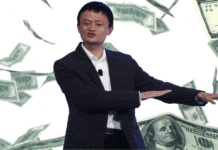- Unlocking Potential: How Quantum AI Trading Can Boost Your Returns by 30%!
- The Foundations of Quantum AI Trading
- Understanding Quantum Principles
- The Role of Artificial Intelligence
- Current Applications of Quantum AI Trading
- Benefits of Quantum AI Trading
- Profit Potential in Quantum AI Trading
- Risk Management Strategies
- Challenges Facing Quantum AI Trading
- Future of Quantum AI Trading
- Preparing for a Quantum Future
- Conclusion
Unlocking Potential: How Quantum AI Trading Can Boost Your Returns by 30%!
In the fast-paced world of finance, innovation continues to redefine how investment strategies are developed and executed. One such groundbreaking advancement is the integration of quantum computing with artificial intelligence—Quantum AI Trading. This revolutionary approach harnesses the computational prowess of quantum computers to analyze vast datasets at unprecedented speeds, enabling traders and investors to make informed decisions quickly and accurately. With predictions showing potential returns that could surpass traditional trading methods by as much as 30%, it’s essential for investors to grasp the intricacies of this innovative field.
The essence of Quantum AI Trading lies in its ability to leverage the principles of quantum mechanics and the capabilities of machine learning. Traditional algorithms tend to falter when faced with the complexity and volatility of financial markets. In contrast, quantum algorithms can evaluate multiple scenarios simultaneously, enhancing decision-making processes and allowing for more agile responses to market changes. This article delves into the transformative potential of Quantum AI Trading, exploring its mechanics, benefits, and future implications on the trading landscape.
To navigate the complex terrain of financial trading, it’s vital to understand the fundamental concepts driving Quantum AI Trading. This entails not only recognizing the basic principles of quantum theory but also how these principles integrate with AI models to formulate actionable trading strategies. Furthermore, this understanding can illuminate the pathways that lead to improved returns and minimized risks.
In the upcoming sections, we will analyze key components of Quantum AI Trading, including its algorithms, market applications, and the challenges it faces. As we explore these elements, we will provide a comprehensive overview, aiming to arm investors with the knowledge necessary to harness this transformative technology effectively.
As we embark on this journey, let’s first examine the foundational elements of Quantum AI Trading, its origin, and its capabilities.
The Foundations of Quantum AI Trading
At its core, Quantum AI Trading combines two powerful domains: quantum computing and artificial intelligence. Quantum computing utilizes the principles of quantum mechanics to process information in ways that traditional computers cannot, allowing for immense processing power. Meanwhile, artificial intelligence employs machine learning and deep learning algorithms to analyze large datasets and make predictions based on gathered data.
The fusion of these two technologies enables traders to remove many of the barriers that traditionally slowed down the decision-making process. By employing quantum algorithms, traders can analyze millions of variables simultaneously, enhancing their ability to identify trends and opportunities swiftly. To illustrate this, consider the following table highlighting key differences between traditional AI algorithms and Quantum AI algorithms in trading:
| Data Processing Speed | Slower, sequential processing | Exponentially faster processing |
| Variable Analysis | Limited to one-at-a-time | Can analyze multiple variables simultaneously |
| Problem Solving Capability | Conventional optimization approaches | Advanced optimization through entanglement and superposition |
The advancements in Quantum AI Trading are set to redefine investment strategies as traders move towards more data-driven approaches. However, navigating through this emerging technology requires a robust understanding of its fundamentals, potential risks, and the intricacies of its algorithms.
Understanding Quantum Principles
To grasp Quantum AI Trading, one must first become acquainted with the basic principles of quantum mechanics. Quantum mechanics revolves around the behavior of matter and energy at the atomic and subatomic levels. Concepts such as superposition and entanglement play pivotal roles in quantum computing.
Superposition allows quantum systems to exist in multiple states at once, effectively enabling a quantum computer to process a myriad of possibilities in parallel. Conversely, entanglement describes the interdependence of quantum particles, where the state of one particle instantaneously affects another, regardless of distance. Together, these principles empower quantum computers to perform complex calculations far more efficiently than classical counterparts.
Through the application of these principles, Quantum AI Trading can unlock valuable insights that drive investment decisions, leading to potentially higher returns. Understanding quantum concepts is vital for traders looking to integrate these methods into their strategies effectively.
The Role of Artificial Intelligence
Artificial intelligence is another essential component in Quantum AI Trading, as it provides the algorithms and machine learning capabilities necessary to analyze and interpret data. By leveraging historical data, market trends, and other relevant factors, AI algorithms can help detect patterns and ancillary relationships that human traders may overlook.
The synergy between quantum computing and AI enhances predictive accuracy. Machine learning models can be trained on optimized data sets generated through quantum computing, leading to improved forecasts of market movements. This ability to predict market shifts with a higher degree of confidence can significantly bolster trading success as it allows investors to make informed decisions based on data-driven insights.
By understanding how AI complements quantum mechanics, traders can develop strategies that benefit from both realms, ultimately enhancing their trading performance. Embracing this integration could offer investors a competitive edge in their trading endeavors.
Current Applications of Quantum AI Trading
The field of Quantum AI Trading is still evolving, but several applications have emerged as indicators of its potential impact in the market. One significant application is in high-frequency trading, where the speed and efficiency of quantum algorithms enable traders to capitalize on fleeting market opportunities within microseconds.
Additionally, portfolio optimization is another area where Quantum AI Trading excels. Quantum algorithms can evaluate numerous investment options, considering various constraints and objectives simultaneously, thus enhancing the portfolio’s overall performance. This application is crucial in minimizing risk while maximizing returns—a balancing act that traditional trading methods often struggle to achieve.
Investors are beginning to adopt Quantum AI Trading to enhance their existing strategies. As more firms and individuals embrace this technology, the landscape of investment and finance is poised to undergo significant transformations, impacting everything from risk assessment to regulatory compliance.
Benefits of Quantum AI Trading
The integration of quantum computing and artificial intelligence in trading strategies offers a range of benefits that can greatly enhance a trader’s returns. One of the most notable advantages is the sheer speed at which data can be processed. Quantum AI Trading can analyze market conditions in real-time, making split-second decisions that can capitalize on opportunities before they vanish.
Moreover, quantum algorithms can handle an immense number of variables, allowing for improved predictive models that can accurately forecast market trends. This leads to a more informed and agile trading strategy, with the potential to boost returns significantly. Below are some of the key benefits of Quantum AI Trading:
- Increased Computational Power: Ability to process vast amounts of data.
- Enhanced Predictive Accuracy: More reliable forecasts of market movements.
- Streamlined Decision-Making: Faster execution of trades and strategies.
- Operational Efficiency: Reduction of costs associated with traditional trading methods.
These benefits position Quantum AI Trading as a game-changer for both individual investors and institutional traders. The combined strengths of quantum computing and AI facilitate a more dynamic approach to trading, helping investors achieve their financial goals with greater efficiency.
Profit Potential in Quantum AI Trading
The profit potential presented by Quantum AI Trading is a crucial aspect that continues to attract investors. Early adopters of this technology have reported returns that outpace traditional trading strategies, leading to increasing interest and investment in quantum solutions.
With the ability to quickly analyze market data and identify profitable trades, Quantum AI Trading can enhance overall investment returns significantly. Reports have suggested that returns can increase by up to 30%, a compelling figure that demonstrates the transformative power of this innovative technology.
Understanding how these returns are achieved is essential for investors looking to maximize their profit potential through Quantum AI Trading. By combining cutting-edge technology with actionable insights, traders can position themselves favorably within the financial markets.
Risk Management Strategies
While the advantages of Quantum AI Trading are significant, it also comes with its own set of risks that traders must navigate. Effective risk management strategies are essential for leveraging this technology successfully. Traders need to employ robust strategies to identify, assess, and mitigate potential risks associated with trading using quantum algorithms.
One viable approach is to diversify investments across various financial instruments, thus minimizing exposure to any single asset. Additionally, incorporating predictive analytics can help traders stay informed about potential market fluctuations and adjust their strategies accordingly.
By understanding the inherent risks in Quantum AI Trading and employing sound risk management practices, investors can protect their capital while seeking to leverage the benefits this revolutionary technology offers.
Challenges Facing Quantum AI Trading
Despite its promising potential, Quantum AI Trading faces several challenges that may hinder its widespread adoption. One significant obstacle is the ongoing development of quantum computing technology itself. While advances have been made, quantum systems remain in the early stages of development, and issues such as coherence and error rates must still be addressed before they can be fully relied upon in trading applications.
Furthermore, security and regulatory concerns pose significant hurdles for the deployment of Quantum AI Trading. As quantum computing evolves, it raises novel challenges regarding security protocols and data protection, prompting the need for updated regulations to safeguard against potential abuses and threats.
The integration of machine learning within quantum algorithms also requires a delicate balance. Training AI models on quantum systems must be approached cautiously to ensure that they are effectively utilizing the unique advantages offered by quantum computing without succumbing to inherent complexities.
These challenges highlight the need for ongoing research and development in this field to address the barriers that currently exist, all while ensuring that potential risks are managed effectively.
Future of Quantum AI Trading
The future of Quantum AI Trading is filled with possibilities as technological advancements continue to shape the financial landscape. As quantum computing matures, and its algorithms become more sophisticated, traders can expect a paradigm shift in how markets operate and how trades are executed.
With the influx of quantum technologies, opportunities for innovative investment strategies will abound. As traders gain access to enhanced computational power and predictive capabilities, the potential for maximizing returns will become more attainable than ever before.
Moreover, alongside the technological advancements, a broader adoption of these solutions is expected across various sectors, paving the way for increased collaboration between technologists, financial analysts, and decision-makers. The synergy between these groups will foster an environment ripe for innovation and growth, promoting a culture of continuous improvement in trading strategies.
Preparing for a Quantum Future
To prepare for the evolving landscape of Quantum AI Trading, investors must adapt their knowledge and skillsets accordingly. Familiarity with both quantum mechanics and machine learning principles will be crucial for those looking to capitalize on the opportunities presented by this technology.
Investors should also stay informed about technological advancements and emerging trends in quantum computing, as this knowledge can provide an edge in understanding the market. Engaging with educational resources, online courses, and forums focused on quantum technologies will be essential for those aiming to stay ahead in this rapidly changing environment.
By actively embracing ongoing learning and exploration, traders can position themselves favorably to navigate the complexities of Quantum AI Trading, ultimately securing their place in the future of finance and investment.
Conclusion
In conclusion, Quantum AI Trading represents a remarkable convergence of quantum computing and artificial intelligence, bringing forth a new era of trading. As this technology continues to evolve, traders stand to benefit from significantly enhanced returns, speed, and efficiency in their investment strategies. Embracing this innovative approach not only empowers informed decision-making but also provides a competitive edge in an ever-changing financial landscape. By understanding its foundations, benefits, and challenges, investors can position themselves to leverage the full potential of Quantum AI Trading and ultimately unlock new possibilities for success.













